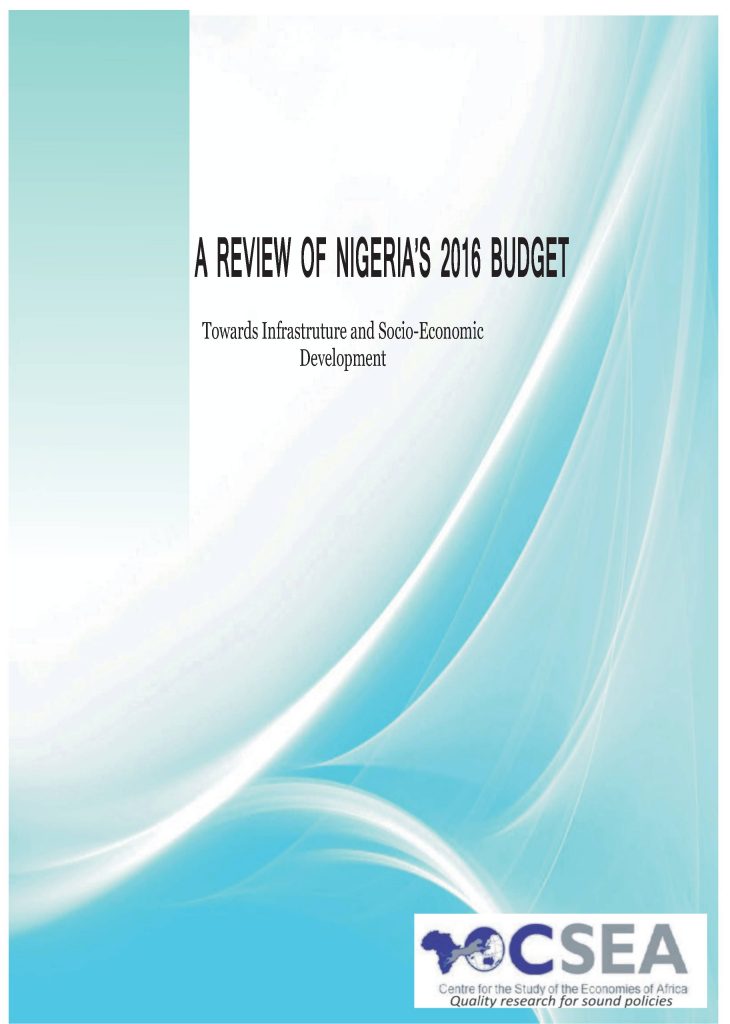Journal Articles and Book Chapters

August 2, 2016
A Review Of Nigerias 2016 Budget
This study
reviews and assesses the 2016
budget of the Federal Republic of Nigeria in line with IMFsbudget assessment indicators, namely: comprehensiveness, transparency, and
realism. The assessment is based on
clear understanding of the present
administrations objectives, which are: to achieve socio-economic
and infrastructural development, to diversify the Nigerian economy, and to
achieve improved security of lives and properties.
Related
Capital Importation And Budgetary Allocation (Oil And Gas)
Capital Importation: Investment in the oil and gas sector has remained low since 2009. However, investments into the sector fell more deeply in 2015, on the account of persistent global and domestic c
Nigeria Economic Update (Issue 34)
Recent NBS data shows a significant decline in
power generated in 2016Q2. Precisely, power generated declined by 31 percent
(quarter on quarter) from a total quarterly average of 92,352 MWH in 2016Q1 to
63,692.39 MWH in 2016Q2. Remarkably, the reoccurrences of pipeline
vandalism in 2016Q2 prompted the shortage of gas for power generation. Thus,
there were about eight recorded system collapses in the quarter which led to
several days of power outages. However, subsequent quarterly declines in power
generation could be averted if efforts to repair vandalized pipelines and adopt
hydro sources are intensified.
